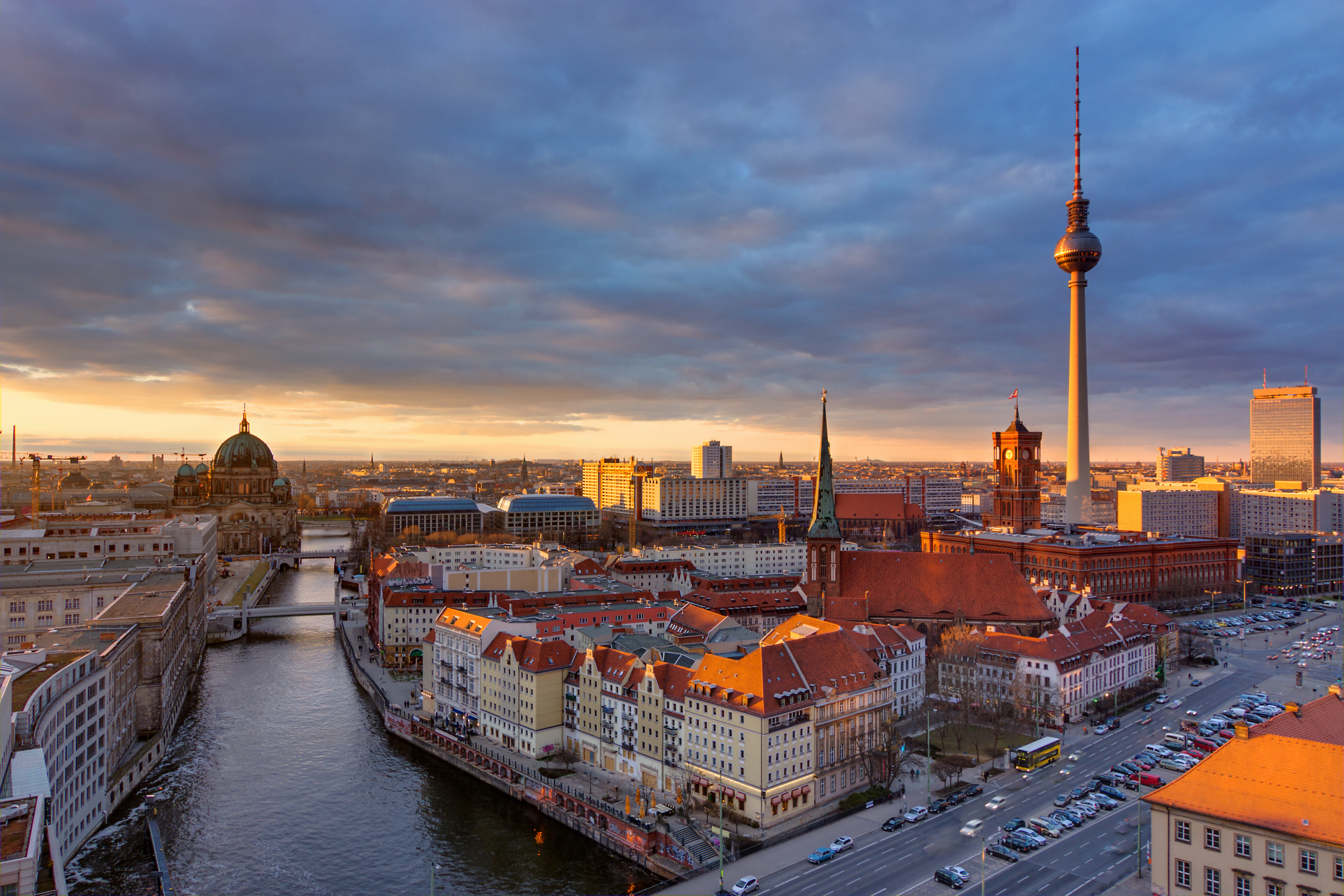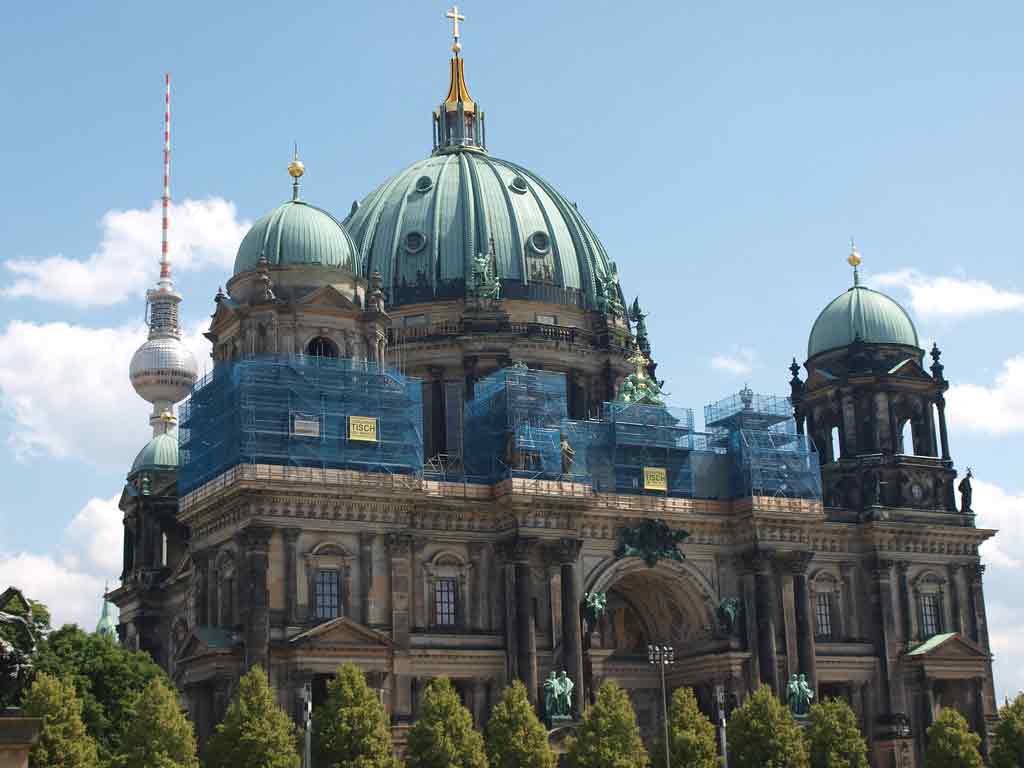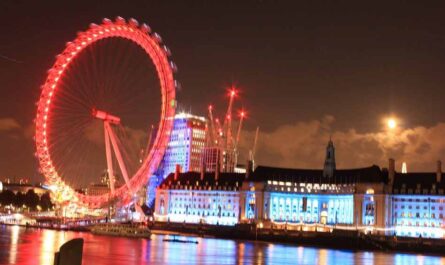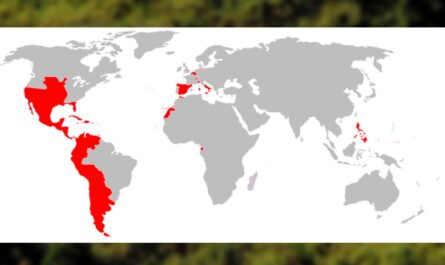Otto von Bismarck said, “An appeal to fear never finds an echo in German hearts.” Germany, located in the heart of Europe, boasts a rich tapestry of nature, history, and culture. The country’s diverse landscapes range from the picturesque Alps in the south to the flat plains in the north, offering a myriad of outdoor activities for nature enthusiasts. Religiously, Germany is predominantly Christian, with both Catholicism and Protestantism being widely practiced. The country is also home to a growing number of immigrants, contributing to its cultural diversity. There are many cool facts about Germany, that people love to know about. Germany is a country with a long history, achievements, and culture. In this article, I am going to talk about some cool facts about Germany
Cool Facts about Germany: Past, Present, Future
Geographically, Germany is characterized by its central European location, bordered by nine countries. Its strategic position has played a pivotal role in shaping the nation’s history and economic prowess. Home to over 83 million people, Germany is a cultural mosaic shaped by centuries of history. The majority of the population speaks German, and the country is known for its punctuality, efficiency, and strong work ethic. Let’s find below some cool facts about Germany:
1. Angela Merkel Barbie: A Tribute to Legacy
In a celebratory gesture marking their 50th anniversary and honoring their Chancellor, Mattel unveiled a strikingly detailed Barbie doll immortalizing Angela Merkel. Every nuance of her iconic haircut, impeccably tailored suit, and distinctive features have been meticulously recreated. This homage to Merkel captures not only a political figure but also symbolizes a cultural icon in the form of a collectible Barbie doll, etching her legacy in the annals of popular culture.
2. Heisenberg’s Uncertainty and German Proverbs
Delving into the profound musings of Heisenberg, the renowned physicist, uncertainty emerges as a fundamental aspect of existence. In a philosophical twist, a German proverb resonates with this notion, cautioning against premature certainty with the aphorism, “You shouldn’t praise the day before the night.” The essence lies in refraining from certainty until an event unfolds, emphasizing the unpredictable nature of life—where assumptions may crumble in the face of the unforeseen.
3. Fanta’s German Roots: A World War II Origin
The widely cherished beverage, Fanta, boasts a rather intriguing origin story rooted in the tumultuous times of World War II, specifically in Germany. The genesis of this popular drink can be traced back to a consequence of the conflict: the imposition of a trade embargo by the United States on Germany. In response to this economic blockade, Coca-Cola found itself unable to conduct business within German borders. Undeterred, the resourceful head of Coca-Cola in Germany took a bold step to keep the business afloat. The ingenious solution involved creating a domestic product using unconventional ingredients such as apple pomace and whey. This strategic maneuver not only sustained Coca-Cola’s presence in Germany during a challenging period but also birthed the beloved beverage known as Fanta.
4. Currywurst: A Culinary Phenomenon in Germany
One cannot overstate the popularity of Currywurst in Germany; it transcends the realm of mere culinary delight and has become a cultural phenomenon. This delectable dish features a sausage generously smothered in a piquant sauce, constituting a quintessential German street food experience. The cult following it has garnered in Germany is a testament to its status as a culinary classic. Notably, Currywurst is not confined to local streets; it has achieved widespread acclaim, making it a cool and unique facet of German gastronomy.
With over 7 million Currywurst servings consumed annually in Berlin alone, the dish has embedded itself deeply in the fabric of German culinary preferences. The sheer scale of its popularity in the capital city prompts contemplation on what the nationwide consumption might be. Adding to the allure of Currywurst, Berlin boasts a dedicated museum, underscoring its significance in the cultural tapestry of the country. Truly, this is a gastronomic phenomenon that transcends borders and captivates both locals and visitors alike—a nugget of information as intriguing as the CIA World Factbook on Germany.
5. Culinary Museums and Currywurst: Germany’s Distinct Palette
In the vibrant tapestry of German culinary culture, the Currywurst phenomenon stands as a vibrant thread, weaving through not just the streets but also the cultural institutions. The existence of a museum singularly dedicated to this iconic snack in Berlin reflects the profound impact it has made on the collective palate. This culinary institution is a testament to the cultural significance bestowed upon a seemingly simple street food, elevating it to the status of a culinary artifact. Germany, with its diverse culinary landscape, is not just a connoisseur’s delight but a treasure trove of unique gastronomic experiences that tell tales of innovation, resilience, and cultural identity.
6. Germany’s Liberal Drinking Laws: A Cultural Anomaly
In the realm of global legal frameworks, Germany stands out for its remarkably liberal approach to alcohol consumption. Contrary to conventional expectations, by the tender age of 14, individuals in Germany are granted the privilege of partaking in beer or wine, albeit “in the company of a custodial person.” This seemingly surprising facet of German law forms one of the quintessential facts that define the cultural landscape of this European nation. It reflects a nuanced perspective on youth, trust, and responsible consumption.
7. Teutonic Cultural Unveiling: The German Quirkiness
Unveiling the cultural idiosyncrasies of Germany, the convergence of Mattel’s tribute and the intricacies of Heisenberg’s uncertainty highlights the nation’s multifaceted nature. From immortalizing political figures in Barbie form to embedding wisdom in age-old proverbs, Germany encapsulates a blend of tradition and modernity. The liberal stance on alcohol consumption, manifested in its legal framework, adds another layer to this narrative, painting a vivid picture of a nation where the whimsical and the profound coexist in a tapestry of diversity.
8. The Magnificent Cologne Cathedral
In the heart of Germany, the Cologne Cathedral stands as a testament to architectural prowess and grandeur. This towering masterpiece, situated in Cologne, Germany, claimed the prestigious title of the world’s finest building from 1880 to 1884 until the completion of the Washington Monument marked a historic transition. This architectural marvel is a symbol of German craftsmanship, boasting intricate details and soaring spires that capture the essence of an era long past. Its awe-inspiring presence continues to draw admirers, cementing its place in history as a beacon of German excellence.
9. Germany’s Beer Culture: A Pint-Sized Phenomenon
Germany, a nation steeped in tradition and renowned for its beer culture, proudly claims the title of Europe’s second-largest beer consumer. In the year 2012, an astonishing 2.55 billion gallons of beer were consumed within the borders of this beer-loving nation. However, this figure represents a notable dip compared to historical data, a consequence of the reunification of East and West Germany in 1990. Within the rich tapestry of Germany’s brewing landscape, more than 1200 breweries actively craft an extensive repertoire exceeding 5000 unique beer brands. This diversity is a testament to the country’s profound appreciation for the artistry and craftsmanship that goes into brewing, making Germany an undeniable paradise for beer enthusiasts worldwide.
10. Literary Powerhouse: Germany’s Prolific Publishing Scene
Beyond its beer-soaked reputation, Germany stands tall as one of the globe’s preeminent literary powerhouses. Annually, this intellectual haven releases a staggering 94,000 titles, a testament to the nation’s enduring love affair with the written word. Amidst this bibliophilic paradise, the crown jewel is undeniably the International Frankfurt Book Fair, an event that draws literary enthusiasts, publishers, and authors from around the world. This grand celebration of literature not only showcases Germany’s commitment to intellectual pursuits but also solidifies its status as a beacon for bibliophiles seeking the literary pulse of the world.
11. Anthem Evolution: Germany’s Musical Transition Through History
In the aftermath of World War II, Germany underwent a unique transformation in its national anthem, encapsulating the nation’s journey through tumultuous times. Following the war, the German anthem became a symbolic representation of resilience, with only the third stanza remaining authorized for public rendition. This poignant choice reflects a conscious departure from the era tainted by Nazi influence, during which the now-excluded first verse was sung. The anthem Metamorphosis serves as a powerful testament to Germany’s commitment to acknowledging its history while embracing a forward-looking identity. It is within these musical notes that one finds a unique narrative of redemption and progression, making it one of the captivating and lesser-known facets of German history.
12. Germany’s Pioneering Role in Daylight Saving during World War I
In the intricate tapestry of historical curiosities, Germany emerges as an unexpected trailblazer in the adoption of daylight saving time. The unpredictable nature of life compels us to unearth seemingly irrelevant details about nations, and Germany’s involvement in this temporal phenomenon during World War I adds a layer of intriguing complexity. Picture the era: an epoch marked by global conflict and innovation. In this tumultuous backdrop, Germany stood as the vanguard, embracing daylight saving with a foresight that transcended the chaos of war. The concept, initially conceived as a pragmatic measure to conserve energy, morphed into a testament to Germany’s adaptability and forward-thinking mindset during a pivotal historical epoch.
13. Germany’s Thirst for Beer: A Close Second to the Czechs
Delving into the world of global libations, Germany emerges not just as a nation of precision engineering but also as a formidable contender in the realm of beer consumption. Surpassing all but the Czechs, Germans hold the coveted position of being the second-largest consumers of beer on the planet. Beyond the stereotypical images of beer gardens and frothy steins, this statistic paints a vivid portrait of a nation that cherishes its brewing traditions. The narrative of German beer consumption becomes a vibrant thread in the rich fabric of cultural quirks, underscoring the significance of libations as an integral part of social life in this European powerhouse.
14. Germany’s Ban on Smoking in Public Spaces
In a momentous stride towards public health, Germany has recently joined the ranks of progressive nations by implementing a comprehensive ban on smoking within restaurants and workplaces. This landmark decision reflects a growing global awareness of the detrimental effects of secondhand smoke on both patrons and employees. The German government’s move signifies a commitment to fostering a healthier environment, aligning with contemporary public health standards. This prohibition not only exemplifies Germany’s dedication to safeguarding the well-being of its citizens but also positions the country as a vanguard in promoting clean air and a smoke-free atmosphere.
15. Germany’s Abundance of Zoological Marvels
Beyond its reputation for efficiency and engineering prowess, Germany boasts a surprising claim to fame—the country is home to an exceptional number of zoos compared to other nations worldwide. This intriguing statistic unveils a lesser-known facet of Germany’s cultural landscape, emphasizing its commitment to preserving biodiversity and fostering a deep appreciation for the animal kingdom. With an array of well-maintained and diverse zoological parks, Germany stands as a testament to the harmonious coexistence of urban life and wildlife, inviting locals and tourists alike to explore the captivating world of fauna within its borders.
16. Drachenstich: Germany’s Mechanical Marvel
Nestled in Furth im Wald, Germany is a marvel that transcends the ordinary—Drachenstich, the world’s largest walking four-legged robotic creation. This colossal mechanical masterpiece is not merely a feat of engineering; it is a testament to Germany’s ingenuity and technological prowess. The name, translating to “Dragon’s Strike,” encapsulates the mythical essence of this extraordinary creation. Drachenstich stands as a symbol of Germany’s dedication to pushing the boundaries of innovation and captivating the world’s imagination. It beckons visitors and enthusiasts to witness the intersection of fantasy and reality, solidifying Germany’s position as a hub of technological marvels.

17. Germany’s Evolution: From Fragmented Kingdoms to a Divided Nation
The labyrinthine history of Germany unfolds like a captivating saga of political metamorphosis. In epochs long past, Germany existed as a patchwork quilt of small kingdoms, duchies, and principalities, each with its own distinct identity and rulership. The turning point came in 1871, when these disparate entities coalesced into the Kingdom of Prussia, laying the foundation for a unified German nation.
The subsequent chapters of this narrative are nothing short of epic—a journey through the Weimar Republic, the ominous era of the Third Reich, and the seismic shift in 1949 that cleaved the nation into East and West. The dichotomy birthed the Soviet-supported East Germany, the German Democratic Republic, and the democratic enclave of West Germany, known as the Federal Republic of Germany. The story of Germany’s evolution echoes through the corridors of time, a testament to resilience, adaptability, and the ceaseless march of history.
18. A Historical Yuletide Tradition: Christkindlesmarkt
The roots of the enchanting German Christmas markets delve deep into history, with the first Christkindlesmarkt recorded in 1384 in the town of Bautzen. Surprisingly, these markets initially revolved around the exchange of meats rather than the festive handicrafts we associate with them today. The evolution of these markets took an interesting turn when Martin Luther endorsed the idea of exchanging gifts during Christmas, surpassing the tradition of Saints’ days. Fast forward to the present, and German Christmas markets have become a global phenomenon, captivating a staggering 160 million visitors annually and generating a remarkable 5 billion Euros in market-related revenues. It’s a festive spectacle that transcends time, bridging centuries of tradition with the spirit of the season.
19. Hamburgers: A Culinary Anecdote from Hamburg
Delving into the quirky nomenclature of the citizenry, the residents of Hamburg, Germany, are whimsically known as “Hamburgers.” However, the association with the famous fast food finds its origins in a surprising historical anecdote dating back to the 12th century. During this period, Tatars, formidable Mongolian and Turkish warriors, ingeniously softened pieces of beef by wedging them between their saddles and horses’ backs. This unconventional method rendered the meat tender enough to be consumed raw—an early precursor to the culinary delight we now recognize as hamburgers. Thus, the name “Hamburgers” takes on a richer meaning, intertwining history, culinary ingenuity, and the enduring legacy of an ancient practice.
20. The Amber Room’s Mystique in the Catherine Palace
The opulence of the Catherine Palace, nestled near Saint Petersburg, is epitomized by the enigmatic Amber Room. Encased within its ornate walls, this chamber is a mesmerizing spectacle where amber panels, adorned with delicate gold leaf and strategically placed mirrors, weave together an artistic tapestry that transcends mere aesthetics. The very mention of the Amber Room evokes a sense of mystery and grandeur, making it a crown jewel within the historical treasury of Tsarskoye Selo. A testament to the artistry of a bygone era, its allure has captivated the imaginations of admirers and historians alike.
21. Germany’s Population Tapestry
Dive into the demographic landscape of Germany, and you’ll find a mosaic of 83,808,340 individuals, each contributing to the rich cultural tapestry of the nation. Beyond mere statistics, this populous nation is a living testament to diversity and coexistence. From the bustling urban centers to the serene countryside, the German populace is a dynamic blend of traditions, languages, and lifestyles. The heartbeat of the nation lies in its people, each carrying a story that weaves into the collective narrative of Germany, making it a fascinating study in the intricate interplay of humanity.
22. Mercedes: A Name Steeped in Tribute and Legacy
The venerable name ‘Mercedes’ isn’t just a brand; it’s a homage to a familial legacy. In 1902, the Daimler-Benz firm birthed the name to pay homage to the daughter of Emil Jelinek, a pioneering Austrian figure in the early automotive industry. Beyond being a mere identifier on the sleek exteriors of luxury automobiles, ‘Mercedes’ resonates with a narrative that intertwines history, innovation, and personal tribute. The wheels of time have rolled on, but the name continues to echo, symbolizing not just a mode of transport but a lineage of automotive excellence with roots firmly grounded in a heartfelt dedication to a cherished individual.
23. Ideal Area Battle over Germany in the Middle Ages
In the annals of historical conflict, a singular event resonates through the tapestry of time—an ideal area battle that unfolded over the expansive landscapes of Germany during the enigmatic era known as the Middle Ages. This reported incidence, shrouded in the mists of antiquity, sparks the imagination with visions of knights clad in resplendent armor, banners fluttering in the wind, and the clash of swords echoing through the emerald valleys. The specifics of this celestial skirmish, the valiant warriors who partook, and the repercussions on the geopolitical landscape remain elusive, inviting historians and enthusiasts alike to unravel the intricacies of this mystical battle that has etched itself into the recesses of history.
24. The Guinness-Recorded Enigma of Spreuerhofstrasse
Delving into the paradoxes of urban planning, one might ponder when a road transcends its conventional definition. The answer to this metaphysical inquiry lies in the quaint town of Reutlingen, Germany, where Spreuerhofstrasse exists as a testament to the bizarre frontiers of infrastructure. According to the discerning eyes of the Guinness Book of World Records, Spreuerhofstrasse stands as the narrowest road on the planet. Its dimensions weave a tapestry of perplexity, measuring a mere 31 centimeters at its most slender juncture—barely wider than a footstep—and unfurling to an astonishing 50 centimeters at its broadest expanse. This enigmatic byway challenges preconceived notions of thoroughfares, leaving onlookers astounded by the paradox of a road that blurs the boundaries of possibility.
25. The Gendered Symphony of German Names
In the realm of nomenclature, German legal intricacies unfurl a captivating tapestry, where the very fabric of a name is interwoven with societal norms. According to the nuanced dictates of German law, the initial choice of an individual’s name extends beyond mere personal preference; it must also be a harmonious symphony with gender. In a captivating dance with tradition, the civil registration office, colloquially known as Standesamt, wields the authority to render judgment on the nomenclatural harmony. A fascinating edict stipulates that if a newborn’s name deviates from the prescribed gender indicators, the Standesamt possesses the prerogative to reject such appellations, thereby upholding the cultural orchestration of names within the German legal framework.
26. Gegenbach’s Grand Advent Calendar Extravaganza
Nestled within the heart of Germany, the quaint city of Gegenbach boasts a distinctive claim to fame—the world’s grandest Advent calendar. Within the hallowed walls of the 18th-century Rathaus, each of the 24 windows metamorphoses into a portal of anticipation and surprise as the town transforms into a living, breathing Advent calendar. A unique fusion of tradition and architecture, Gegenbach’s Rathaus stands as a testament to the historical tapestry woven into every festive countdown. Every window, a cherished emblem of the holiday spirit, reflects the town’s commitment to preserving the magic of the season.
27. Germany: Pioneers of Time Manipulation
In the annals of timekeeping innovation, Germany emerges as the pioneer of an intriguing temporal dance—the adoption of Daylight Saving Time (DST). This bold chronological experiment, implemented in 1916 amidst the tumult of World War I, bestowed upon the world a biannual recalibration of the clocks. During the effervescent days of summer, the clocks gracefully leap forward, embracing the longer rays of daylight. Yet, as winter’s chill sets in, the clocks retreat, gifting an extra hour of repose. Germany, with its foresight born of wartime necessity, unveiled DST to conserve energy resources, etching its name in the pages of timekeeping history.
28. Germany’s Brew Haven: A Connoisseur’s Delight
Venture into the frothy realm of German libations, and you’ll find a nation that has elevated beer consumption to an art form. Boasting a staggering 1,300 breweries crafting over 5,000 distinct beer brands, Germany stands tall as the second-largest beer consumer per capita on the globe, trailing only behind the beer-loving Czech Republic. The effervescent symphony of hops and barley creates a sensory kaleidoscope that titillates the taste buds of connoisseurs worldwide. Within this hop-laden landscape, Germany’s beer culture unfolds, weaving a tale of craftsmanship, heritage, and a thirst for unparalleled brewing excellence.
29. The “Bierleichen” Phenomenon at Oktoberfest
In the festive revelry of Oktoberfest, a peculiar term emerges to describe those who have indulged a bit too much in the frothy delights of beer: the “Bierleichen” or beer corpses. It encapsulates the aftermath of individuals who find themselves in a state of inebriated bliss, a consequence of consuming an excessive amount of beer amidst lively celebrations. These beer corpses, draped in the spirit of merriment, contribute to the unique and vibrant atmosphere that characterizes the renowned Oktoberfest in Germany.
30. The Ingenious Beer Pipeline of Veltins-Arena
Delving into the heart of Gelsenkirchen, Germany, lies the Veltins-Arena, a colossal soccer ground that not only hosts thrilling matches but also boasts a distinctive feature—the interconnectedness of its bars through a remarkable beer pipeline. Stretching across an impressive 5 kilometers (3.1 miles), this beer conduit ensures a seamless flow of the golden beverage, allowing patrons to savor the taste of camaraderie and sportsmanship while navigating the expansive grounds. The innovative beer pipeline stands as a testament to Germany’s penchant for blending engineering prowess with the joyous spirit of communal gatherings.
31. Germany’s Demographic Decline and the Role of First Aid Training
Beyond the revelry and technological marvels, Germany grapples with a more serious concern—population decline. As demographic indicators reveal a shrinking populace, the country takes a proactive approach to ensure the safety and well-being of its citizens. An intriguing facet of this effort is the mandatory first aid training required for obtaining a driver’s license. This unusual prerequisite serves a dual purpose: not only does it contribute to road safety by equipping drivers with essential life-saving skills, but it also fosters a sense of collective responsibility. In the unfortunate event of an accident, drivers become potential first responders, capable of providing crucial assistance until professional help arrives. Thus, Germany intertwines the realms of road safety and emergency preparedness, underscoring the nation’s commitment to the welfare of its people. Tiqets: Directly bookable and instantly available mobile tickets for attractions around the world
32. The Magnificent Fresco at Wurzburg Residence
The grandeur of artistic expression finds its pinnacle in the world’s largest fresco, an awe-inspiring masterpiece adorning the walls of the Wurzburg Residence. Crafted with meticulous precision by the skilled hands of Giovanni Battista Tiepolo, this monumental fresco stands as a testament to human creativity and artistic prowess. The sheer scale and intricacy of Tiepolo’s work transport viewers into a realm where brushstrokes become whispers of a narrative, unfolding against the backdrop of architectural splendor. The Wurzburg Residence, with its resplendent fresco, emerges as a sanctuary where history and art converge, inviting contemplation and admiration.
33. Germany’s Unique Approach to Prostitution
In the intricate tapestry of German societal norms, a distinct thread weaves through the fabric — the legalization and acknowledgment of prostitution as a legitimate occupation. In the German landscape, the contours of legality envelop all aspects of the sex industry, spanning from brothels to commercial enterprises and even extending to job recruitment facilitated by HR agencies. This unique perspective challenges traditional perceptions, viewing sex work through a lens of legality and regulation. The intertwining of societal acceptance and legal frameworks in Germany sets it apart, fostering a dialogue about the nuanced intersections of morality, individual choice, and societal norms. Cheap but Good Hosting Services Rated by Reviewers
34. The Sausage Symphony of Germany
Beyond the cultural and historical tapestry that defines Germany, an unexpected delight awaits gastronomic enthusiasts — the world of German sausages. A staggering revelation unfolds as one delves into the realm of Teutonic culinary diversity: there exist more than a thousand distinct varieties of sausages in Germany. This fascinating tidbit not only tickles the taste buds but also serves as a testament to the country’s culinary richness. From the hearty Bratwurst to the flavorful Currywurst, each sausage tells a story of regional traditions, culinary craftsmanship, and a palate that embraces diversity. Germany, known for its precision in various realms, showcases a sausage symphony that resonates with the epicurean and the culturally curious alike.
More Interesting Articles




